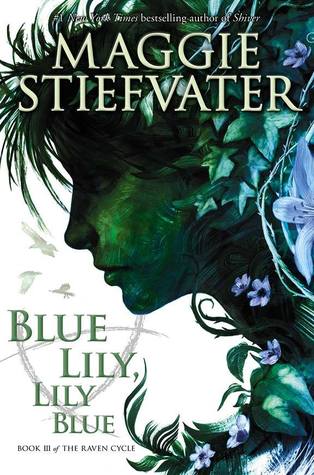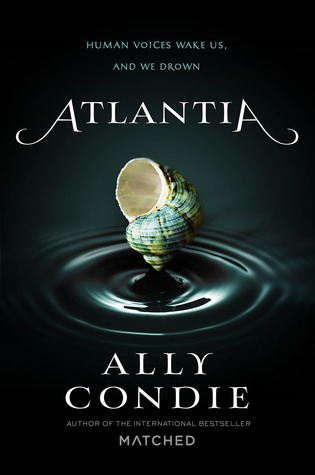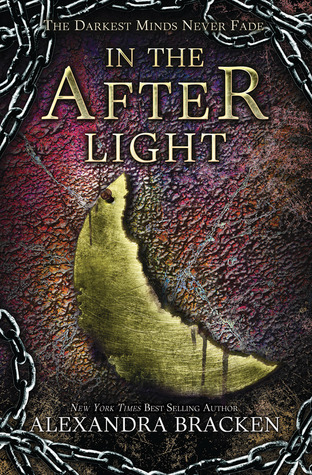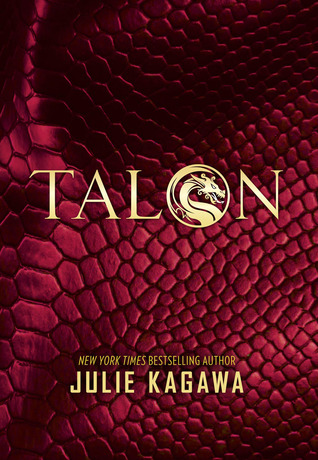Being involved in the book community, we hear a lot about author behavior; something an author said at an event that has caused a kerfuffle, or something they posted on a social media site. Some of these things have been, I think, blown out of proportion and taken out of context. Others, not so much (like an author stalking a blogger). So I've asked my guest bloggers, Hazel, Kel, and Katherine, to talk about what they think about author behavior. How should authors behave on their social media sites and at events? And what does it do to your regard for an author if they behave in a less-than-professional manner?
Katherine's Thoughts
I wrote a short story once. It was for my 9th-grade English class. I worked extremely hard on that story, simply because I don't have the natural talent some authors have when creating characters and worlds. The story was complete rubbish and I knew it. In fact, I'm surprised the FBI hasn't come looking for me, considering that I pretty much stole all the ideas from Gossip Girl (for the record, though, I got an A. Said story went in the recycle bin, never to see the light of day again).
As an author, you need to have a thick skin. That's not a suggestion; that's a fact. You may think that you're book or story is the most precious thing on the face of the planet, the best thing since the baby Jesus was born. But the hard truth is, not everyone is going to like your book. Some people will love your book to death; others will revile it and tear it apart. A lot of people think that William Shakespeare is the greatest writer in the English language. Others think he's horrible, unintelligible, and all around boring.
Even though I'm not an author myself (and never plan to), I do know that the best way to better yourself as a storyteller is to take all criticism, good and bad, and LEARN from it. Oftentimes, it will help you tremendously in the long run. Unfortunately, not all authors realize it.
Some of you may not have been aware of the most recent (and possibly most frightening) incidents of authors behaving badly. Kathleen Hale, author of No One Else Can Have You, wrote an article for The Guardian about her possibly being Catfished by a book blogger. Said book blogger wrote a one star (but not offensive) review of her book, so what does the author do? She stalks the blogger on the social media front, obtains her address (and confirms it with HarperCollins), GOES TO HER HOUSE, PEEKS IN HER CAR, AND CONFRONTS the book blogger at her house. All because of a one star review. The blogger got so scared that she's no longer blogging, and has virtually disappeared off the social media sites, though I really can't blame her.
I'm sorry, but this is NOT OKAY. STALKING IS NOT OKAY. This could have gone horribly wrong, as was the case of another BBA, Robert Brittan. He got so enraged by a one-star review that he tracked the reviewer down and hit her over the head with a wine bottle. What if Ms. Hale had done that? This blogger has young children. Previous articles of the author's have shown she has a history of obsessive and violent behavior. If could have gone really wrong, really fast. But no bad review should ever be worth doing something so morally corrupt, disgusting, and unacceptable.
For example, Divergent got pretty lackluster critical reviews when it came out. Suppose, hypothetically, that Theo James happened to read one of these said bad reviews and take it upon himself to hunt down the critic, look up his address, and confront him personally. I don't care how hot Theo is, I would immediately lose all my respect for him as an actor and as a person. Because what he did would be unethical and morally wrong (that being said, I can say with certainty that he would most likely never do anything like that).
The Internet these days has made it easier than ever with readers to interact with their favorite authors. But it's also made it more dangerous. This whole incident with Hale has made it perfectly clear that we as reviewers have to be especially careful with who we give inform out to. We should not, however, have to apologize for giving our honest opinions about books. We're not doing this for pay. We're not doing this so we can potentially destroy an author's career. We do this for fun, for the enjoyment of sharing our love of reading and certain books with others. If I were ever an author, I would much rather someone hate my book and give me an honest opinion than suppress their real feelings for fear of me being hurt.
As far as author interaction is concerned, I do think it's wonderful when authors interact with their fans, whether in person or on the Internet. There should be boundaries, though. Authors should NEVER ask for your personal information. I don't care if you're the Queen of Sheba, you ARE NOT getting my personal details. And unless you know the author personally, don't invite them other, either. In general, readers, reviewers and authors just need to be extremely careful when it comes to interacting with their fans, just like actors need to be careful when interacting with their fans as well.
Kel's Thoughts
I think the rule for how authors should behave is the same for how everyone should behave: treat others the way you'd like to be treated. Beyond that, I'm not going to comment on "how authors should behave." They're adults, they're professionals, and they know that what they say, for better or worse, may have an effect on their book sales.
I will, however, say that, as with celebrities, I do my best to avoid chatter and gossip surrounding authors. We all bring different beliefs, preferences, politics, etc. to the table when we read. Knowing things about the author's personal life/actions can color my perspective while reading a book, so I try to limit my exposure to that.
If I like a book, it doesn't mean I have to love the author or vote the same way or like the same music. Similarly, hating a book doesn't mean I have to despise the author and avoid him/her. Good example: I HATED an eARC I read this summer, but I still follow the author on Instagram because he posts cute puppy photos. :)
The other thing I try to remember in these matters is grace. I'm not always as forgiving as I should be, and I jump the gun way too often; but we all make mistakes and say stupid things. It's easy to pick a side and join the attack. Applying the Golden Rule to the situation? Especially to all parties involved? That's a little harder.
Hazel's Thoughts
The past couple months seem to have shown a blow up of authors being less than courteous to their readers, whether through social media or even, at the extreme, stalking (without naming names). This isn't socially acceptable behavior in any quarter, but it makes it all the worse when it's authors doing this to their readers. As an author myself, I find this particularly despicable. I would never think to mistreat my readers thusly. They are the people who keep us going! Whether they give you a bad review or not, you shouldn't go ballistic and have a tiff over it like a five-year-old, because that's what they're acting like. And refusing to answer that you term "stupid questions?" If you offer on your websites for readers to contact you with questions, then you should be ready to answer anything, no matter how mundane. If you aren't prepared for that, then don't offer.
Social medial being so big these days, stuff flies around the internet really fast, and this might not be a good thing. Sometimes an author might just be having a bad day and they say something biting, and regret it later. Then everyone blows it out of proportion. However, the point (to me, anyway) of posting stuff in the internet, is that you are typing something out. You have to think about it that much longer, and it's not just something that comes out of your mouth on a whim, so you must mean it enough to choose to write it down and post it on the internet, and your own social media sites as well. In that instance, I do believe that the authors are fully aware of what they are doing, and for whatever reason, they want to make themselves look bad. Whatever, just remember, like when you were a kid throwing a tantrum, there will be consequences.
I've seen several boycotts going on around Goodreads for books written by authors who have gone off the reservation. Even as an author myself, I am totally for this. It's the only way they're going to realize that what they did could actually affect them and the sales of their books. I would hope that if I was ever terrible to my readers, then I would be reprimanded. I can only hope these author will change their ways, though I think the stigma will always be with them.
And let's talk about reviews, as this seems to be one of the problem areas. A true reviewer will write an honest review, whether they pick up a book from the library or are given the book by the author themselves. That should have no affect on the final outcome of the book. If it sucked, it sucked, plainly put. Authors cannot go into writing without a spine. You can only hope that everyone will love your book, yeah - we all do. But it's not reality and you also need to keep that in perspective and put a helmet on. You're going to get bad reviews. That's just how it goes. Not everyone likes a book equally. I will agree that some reviewers don't go about reviewing properly, either. You can't just say you hated a book without giving a reason for it. But nor should authors hate on the readers for that, either. Several of my favorite authors have written books I've hated, but I still love their work; I just didn't like that particular book. Authors just take things too seriously. They worry too much about ratings, when the truth of the matter is that true writers do not write for that. We write because we love it, no matter what anyone else thinks. It's not going to stop up from writing what we want to. And in my experience, for every one bad review, there are usually one or two good ones. In fact, the only review I have ever gotten was not even a bad review; the person just said they thought something should have happened with my characters that was way off the mark. And I didn't go off and call them out because of it, either. As an author, you do have the right to hate a review and even cry or yell about it. But that does not give you the right to publicly say so.
The one thing I will not tolerate as an author is hating the readers, so I hate it when authors call them out. There is no excuse for that. They are the only people who keep you going. Without them, you wouldn't be anything, therefore treat them well! Because if the ratings go down, guess whose fault that is. There are a lot of terrible books out there that have great ratings, so it literally means nothing.
To make a long story short, if you're an author, are spending your time surfing the internet, just looking for people hating on you, stop and go back to writing! If you can't handle the pressure, you don't need to be out there putting authors in a bad light. Always use social media responsibly.
The Reading Hedgehog's Thoughts
I am a bit of a hypocrite - or at least, I will be, once I go from writer to published author. Why? Because I understand what it must be like with fans. Fans are such a double-edged sword; they're great because they make your book successful and who doesn't love sharing their work with people who appreciate it? On the other hand, though, you also have the fans that can pervert your characters and your story through fanfiction, or fans who are creepy and annoying. As a writer, I cannot imagine anything worse than having some unknown person write a fanfiction that totally distorts my characters and my story. As the writer, the characters are way more than "just characters."
So, how can I fault an author who is, say, very vocal on their thoughts about such fans and fanfiction - especially when they're asked? Of course, there is a place and a time to voice certain opinions, but I absolutely cannot blame an author for wanting to make their view clear on something that directly concerns something that is so near and dear to their heart. Again, especially if they are asked. Is there a way of putting it without being downright rude? Oh, sure. Will media take it that way or blow it up into something that it wasn't? Absolutely.
Why does this make me a hypocrite? Because I also can't stand authors who are rude to fans. That person has traveled - sometimes quite a distance - to meet you and talk about how much they love your book, and ask some burning questions. There's nothing more disappointing, more depressing than discovering that a person you admire is really a jerk. Thankfully, I have never met an author who has been like this, and in general (but not always) I think YA and Middle Grade authors tend to be a lot nicer. They're writing YA and Middle Grade because it's fun and it's what they love.
Something that makes me even more of a hypocrite: when I'm an author, I know that if someone asks me what I think of fanfiction, I will tell them the truth (I don't like it), and if a fan ever said something untrue about my characters, I would correct them, and probably not in the nicest manner (it would totally depend on what they said about my character, though).
But being an author and doing author events is a profession; it's part of your job. And as anyone who is good at their job knows, you have to maintain a professional face. It's part of it, unfortunately. It may grate on the author's nerves, they may want to scream and shout, but it is part of the job. Bite your tongue, be diplomatic if at all possible, and grin and bear it.
This ties into social media behavior. Authors, of course, can say whatever they want on their social media pages - or even in public. They have freedom of speech as much as the next person. But if you tie your social media to your job (AKA writing and promoting your books), you're going to have to treat it with the same professionalism as events. And if you say something that angers a lot of people, well, accept the consequences. Fans are, fortunately and sometimes unfortunately, how your books gain success. They are your market; they are your clientele. That doesn't mean you have to give in to their every demand (like changing things in your story; never sacrifice what the story needs for popular demand). But you do have to behave professionally toward them in interactions. If authors really want a social media space where they can vent, make it private, put it under a different name, et cetera. If you're a high-profile author, there's always the risk that some clever bloke with discover your identity, of course. But maybe there's just some things that don't need to said on social media, and should instead be vented to friends and family only.
When it comes to authors reading reviews, I always think it's a bad idea. Just like authors shouldn't read fanfiction or go onto Tumblr (you're setting yourself up for irritation and horror by doing that), it's my opinion that authors should just avoid reviews entirely. Let's face it: someone out there isn't going to like your book. It may be a lot of someones. It may be a few. There's going to be someone who doesn't necessarily express their dislike for your book in the most flattering of terms (whether that's right or wrong is another topic we'll discuss in the future: Blogger Behavior). Don't. Look. Just don't. Because it will bother you, and you will want to respond. And that isn't going to look good for anyone, least of all the author. Reviews are dangerous territory for authors, and it should be avoided by them. You'll save yourself - and others - a lot of problems that way.
It wouldn't be easy being an author, sharing and exposing something so close to you to the ridicule and opinions of the world. It is a fear I fight with daily when I question whether or not I really want to be published (I do, don't worry). But events and social media are used for promotion, and should be treated like any other job. I know authors hear the same stupid questions over and over and over again. But it's part of the job to answer them. There's also this handy-dandy thing called Frequently Asked Questions, as well as putting statements up on your website and/or social media saying, "Hey! I love questions! But I don't always have time to answer all of them! Check out the FAQ to see if maybe your question has been answered already!" And authors, if you open yourself up to be asked literally anything (I know of a few who do), well, that means you'll be asked things that are not related to your books and that's your own fault.
That being said, fans also should be a little more conscientious about what they tell authors (would you really like it if someone told you they wrote a story about something you spent years writing, and they totally twisted everything in it?). But Blogger/Reviewer/Fan Behavior is a topic for another time.





























